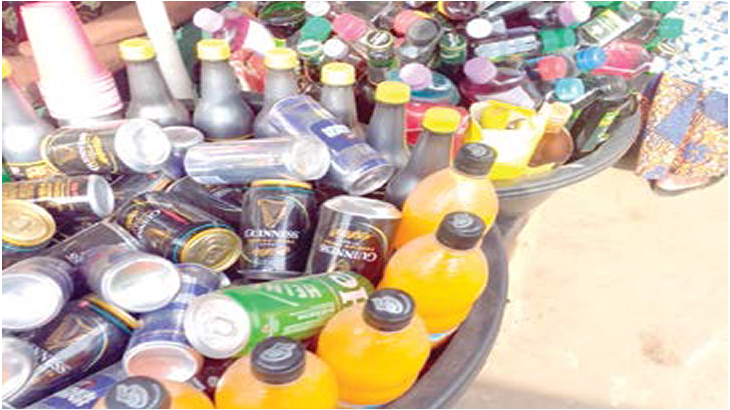
Drinks made with dirty water can transmit cholera. - NCDC
According to the Nigeria Centre for Disease Control and Prevention, cholera can spread through drinks, ice, and foods made with tainted or dirty water.
When contaminated food or water is consumed, the bacteria Vibrio cholerae is released into the system, causing foodborne illnesses like cholera.
Cholera symptoms include sudden onset, intense, painless, watery diarrhoea (rice water stools), with or without vomiting. Frequent vomiting, nausea, and fever are possible side effects.
According to experts, dehydration from severe cholera cases can cause death in a matter of hours. About 80% of infected individuals, however, may only exhibit minimal symptoms or none at all.
Cholera is a yearly, endemic, seasonal illness that primarily strikes Nigeria during the rainy season and more frequently in areas with poor sanitation.
Ten states, namely Bayelsa, Zamfara, Abia, Cross River, Bauchi, Delta, Katsina, Imo, Nasarawa, and Lagos, account for ninety percent of the current cholera outbreak burden.
According to the Nigeria Centre for Disease Control and Prevention, cholera cases have been reported from 96 LGAs in 30 states thus far between January 1 and June 11, 2024.
According to experts, cholera is more common in places with dense populations, inadequate water supplies, and inadequate personal and environmental hygiene.
Prior to this, Dr. Jide Idris, the NCDC's director general, revealed that the organisation is evaluating the risk and helping the states contain the outbreak.
The NCDC issued a warning on Tuesday on its X handle, NCDCgov: "Drinks, ice, and beverages made with dirty or contaminated water can spread #cholera."
"Take precautions for your family and yourself; avoid purchasing or consuming food or beverages made with water from dubious sources."
The organisation gave Nigerians advice on how to stop the infection from spreading, including making water safe and using water from reputable sources.
"Use water from reputable sources, boil water before drinking, store water in appropriately covered containers, and make sure that pure water sachets and bottles are properly sealed before consumption," the statement advised.
The organisation stated on its website that early detection makes the disease easily treatable.
The majority of infected individuals can be effectively treated with the right antibiotics and timely oral rehydration solution, which replenishes lost fluids and electrolytes.
The powdered ORS solution can be reconstituted with either boiled or bottled water. If an infected person does not get medical attention right away, cholera can be fatal.
"Access to clean, drinkable water; appropriate sanitation and waste management; and good hygiene, including handwashing, can all help prevent cholera. It further stated that one should stay away from raw or undercooked seafood, street vendors' food, and raw fruits and vegetables.
It asked state governments to give priority to finding solutions that guarantee communities' access to and use of clean water, basic sanitation, and good hygiene habits.





